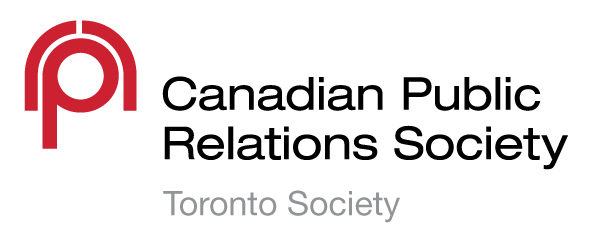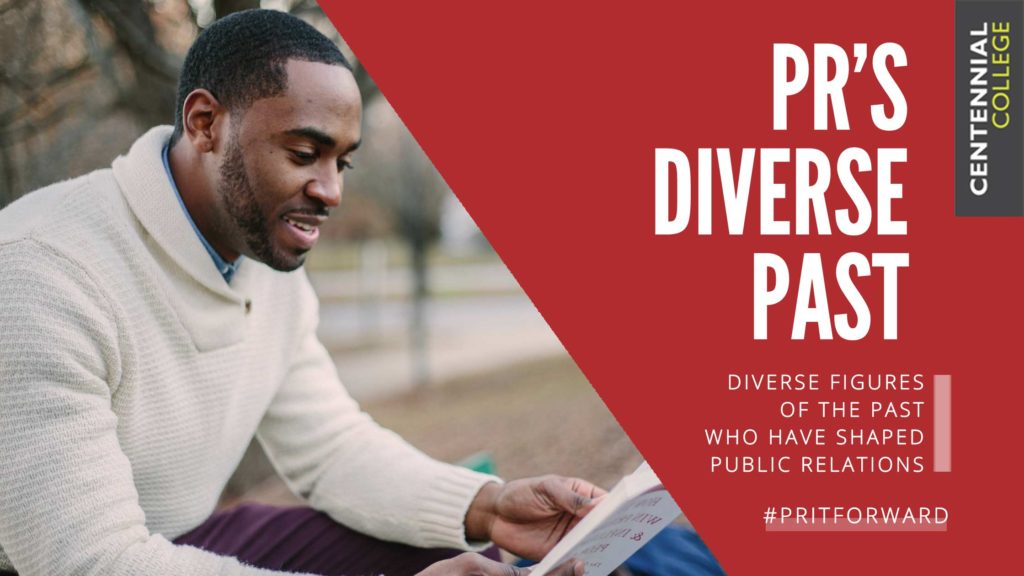Written by: Sarah Heiman, Rebecca Moe, Daisy Johanna Uy and Charmaine Blair, CCPR postgraduate students, Centennial college
This year, it is important to reflect on the Black communicators who have shaped the PR industry. The death of George Floyd on May 25, 2020, put a spotlight on the Black Lives Matter movement (#BLM). It sparked a global conversation on racial justice for Black, Indigenous and other people of colour (BIPOC). The PR and communications industries were forced to reflect on the role they play in enacting and influencing change (Ghane, 2020).
Being Black history month, we want to shine a light on the Black PR pioneers that have paved the way for BIPOC PR professionals. We have a lot to learn from their stories of resilience, advocacy and success.
1. Black representation matters
When people see themselves represented in society, media and the workplace, they are more likely to be engaged. We saw this in the case of Joseph V. Baker, who persuaded companies to have Black representation in advertising and hire Black workers to create brand loyalty. When Moss Kendrix identified the previously untapped Black consumer market in his work for Coca-Cola, the successes of his campaigns helped the company grow in advertising, job opportunities for Black Americans and other business opportunities.
But representation isn’t only about enhancing the work we do. Representation matters because everyone deserves to see themselves as their childhood heroes, and fulfilling their dreams. Representation captures the reality of how our world truly looks and lets us hear the diverse stories that would be missing. With representation, BIPOC individuals learn to embrace and share their culture to be appreciated and celebrated by all. “Diversity is vital to the effectiveness and credibility of PR. It’s crucial to encourage more people of all races to pursue careers … and to create spaces where diverse practitioners feel safe, included and empowered to do their jobs effectively” (Carrington, 2020).
2. Use your voice for advocacy
Inez Kaiser and fashion demanded representation. She used her voice and work to open doors for girls.
Powerful Black voices impacted the industry with their great advocacy work, however, as we continuously grow, we learn the responsibility no longer falls on BIPOC practitioners alone. It is the responsibility of all folks to use their voices in advocacy and allyship to continue the great work of Joseph Baker, Moss Kendrix and Inez Kaiser. These Black communicators solidified the importance of honesty and integrity in their work. They were respected for their candor and inclusive visions.
3. Know your worth and speak your truth
Inez Kaiser was determined to speak her truth. When getting her Bachelor’s degree, she stayed in school, even when her teacher said she didn’t want Black students in class. She fought discrimination to get office space for her PR firm.
Joseph V. Baker also knew his life experience and his ethnicity had worth. He used these assets to vastly improve the campaigns for his clients, appealing to a larger audience group that may have been previously ignored and opening a new marketing stream for these companies too.
4. Change won’t come overnight
Hearing about the work of advocates and the struggles they faced, it can be discouraging to see how far we have to go to achieve DE&I. However, we can remain hopeful knowing that more and more advocates and supporters are emerging and pushing to make change.
5. What you live becomes your legacy. Throw down a ladder.
Moss Kendrix, Inez Kaiser and Joseph V. Baker leveraged their experiences and knowledge to become successful in their fields. They also made sure to leave a legacy that will continue to help minorities entering the workforce for generations to come.
In whole, when listening to today’s episode and reading our reflections here, it is important we appreciate the challenges that were overcome, but understanding that the work is far from over.
Your voice has power, and after unpacking today’s episode, we invite you to reflect on your position and perspective, and the changes you can make to push DE&I in your life and community. For more information on the topics in today’s episode, check out the resources below.
Listen to the full first episode of The Future of PR Looks Like Us by clicking here.
The Future of PR Looks Like Us campaign
The Future of PR Looks Like Us is led by a team of Centennial College PR and corporate communications postgraduate students in partnership with the Canadian Council of Public Relations Firms (CCPRF). We intend to highlight the importance of diversity, equity and inclusion (DE&I) in the PR industry.
This blog accompanies a podcast series exploring diverse voices that influenced the industry and featuring work done by PR students from Centennial College. Learn about diverse figures of PR’s past who have shaped the industry for today’s BIPOC professionals. Listen in to uncover misconceptions and learn about the opportunities the industry holds. The series closes by highlighting the bright future PR professionals and students see as diversity grows within the industry.

